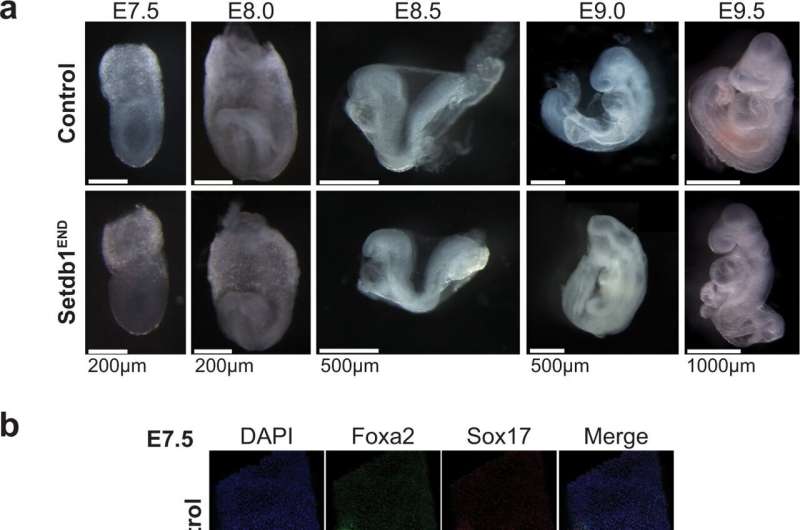DNA modification important for silencing of endogenous retroviruses

LMU molecular biologist Gunnar Schotta has investigated which mechanisms prevent endogenous retroviruses from becoming overly active.
Endogenous retroviruses (ERVs) have established themselves in the human genome in the course of evolution and play a major role in normal gene regulation. Excessive ERV activity, however, can lead to diseases such as autoimmunity and cancer. And so cells have developed mechanisms for recognizing and silencing endogenous retroviruses.
The silencing is accomplished by packaging the corresponding DNA sections into a less accessible structure. This process is facilitated by modifications to the histone proteins that package the DNA (H3K9me3) and a modification to the DNA itself (DNA methylation). It has not been clear before now, however, which of these modifications are really important for ERV silencing.
The team—led by Gunnar Schotta from LMU's Biomedical Center Munich—has found that in certain cell types, DNA methylation is decisive and the presence of H3K9me3 is not sufficient to silence ERVs. This discovery furnishes an important basis, for example, for the investigation of aberrantly activated ERVs in the context of diseases such as cancer and autoimmunity.
The study was published in Nature Communications.
More information: Zeyang Wang et al, Dominant role of DNA methylation over H3K9me3 for IAP silencing in endoderm, Nature Communications (2022).
Provided by Ludwig Maximilian University of Munich



















